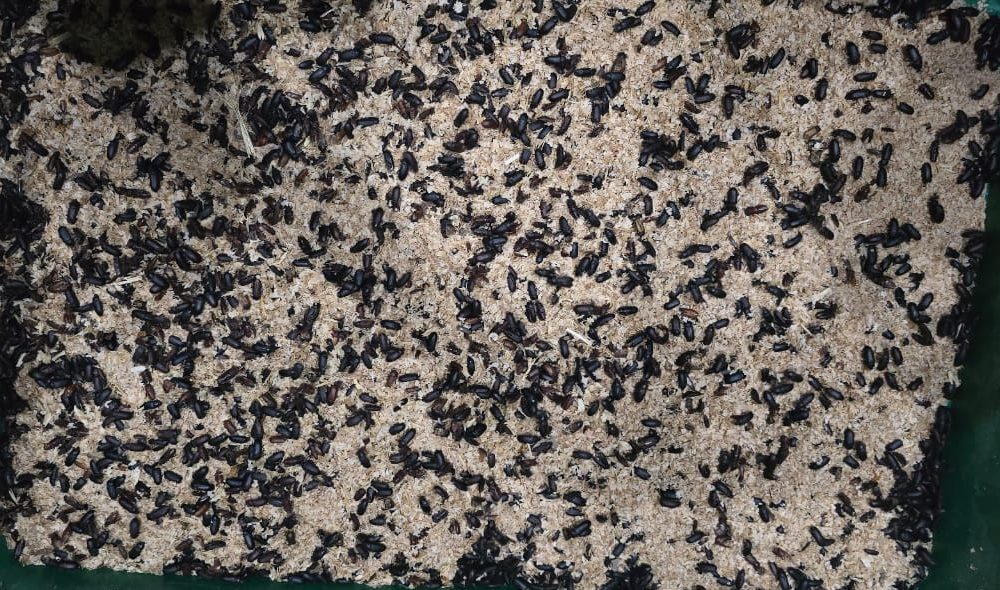Introduction:
Mealworm farming is a rewarding and sustainable way to recycle organic waste, create nutrient-rich compost, and support soil health. However, beginners often face challenges that can hinder their farm’s success. This blog highlights the top ten common mistakes new worm farmers make and offers practical solutions to keep your worms thriving and your farm productive.
Key Sections:
- Mistake #1: Overfeeding Your Worms – One of the most common mistakes is adding too much food too quickly. Overfeeding leads to excess waste buildup, which can generate odors, attract pests, and create a toxic environment for worms.
How to Avoid: Start with small amounts of food and wait until it’s mostly broken down before adding more. Regularly check the bin to ensure worms are actively feeding on what’s available and adjust feeding accordingly. - Mistake #2: Wrong Temperature and Moisture Levels – Mealworms thrive in specific temperature (25-35°C) and moisture (45-65%) ranges. Too much moisture causes the bin to become waterlogged and can suffocate worms, while extreme temperatures can stress or kill them.
How to Avoid: Monitor the bin’s moisture level by adding damp (not wet) bedding, like shredded newspaper, and keep it in a shaded or temperature-controlled area to maintain an ideal climate. - Mistake #3: Using the Wrong Worm Species – Not all worms are suited for composting. Red wigglers (Eisenia fetida) are ideal for worm farms as they efficiently process organic waste, whereas other species, like earthworms, may struggle in confined environments.
How to Avoid: Stick to red wigglers or other recommended composting species. Avoid using garden worms, as they often require different environmental conditions to thrive. - Mistake #4: Ignoring Proper Air Circulation – Worms need oxygen to survive, and lack of airflow can cause foul odors, which indicate the presence of anaerobic bacteria harmful to worms.
How to Avoid: Ensure your bin has adequate ventilation holes. Stir the compost occasionally to improve airflow and avoid compacting the material. - Mistake #5: Not Properly Separating Worms – Harvesting compost can be tricky without disturbing worms. If done improperly, you risk harming worms or leaving unfinished compost behind.
How to Avoid: Use the “light method” by exposing one side of the bin to light and collecting compost as worms move away, or use a mesh screen to separate them gently. - Mistake #6: Not Properly Separating Eggs – Over time, eggs accumulate in the compost, which can lead to overcrowding if not properly separated during harvest.
How to Avoid: Look for small yellowish capsules (the eggs) and transfer them to a new section of the bin to hatch safely. This practice keeps your worm population balanced and allows for continuous compost production. - Mistake #7: Inconsistent Feeding Schedule – Worms require a steady supply of food, but irregular feeding can disrupt their digestive cycles, causing under- or overfeeding issues.
How to Avoid: Set a feeding schedule based on your worms’ consumption rate. Most bins need feeding once a week, but adjust based on the number of worms and amount of food left in the bin. - Mistake #8: Adding the Wrong Types of Food – Certain foods, like citrus, meat, dairy, and oily or salty foods, can be harmful to worms, causing acidic conditions or attracting pests.
How to Avoid: Stick to plant-based kitchen scraps like vegetable peels, coffee grounds, and small amounts of fruit with high water content. Avoid spicy, salty, or acidic foods, as these can damage worms and disrupt the bin’s pH. - Mistake #9: Forgetting to Maintain Bedding Levels– Bedding provides both habitat and nutrition for worms, and neglecting to replenish it as it breaks down can stress the worm population.
- How to Avoid: Add new bedding material, like shredded newspaper or coconut coir, every 1-2 months or whenever you notice the level has decreased significantly.
- Mistake #10: Allowing Bin to Become Overcrowded – Over time, a worm bin can become overcrowded, leading to competition for resources and creating stress for worms. Overcrowded bins also produce more waste, which can impact air circulation.
How to Avoid: If your worms are multiplying quickly, split the population into a second bin. Keep an eye on the overall volume and provide additional space as necessary.
Conclusion:
Avoiding these common mistakes will keep your worm farm running smoothly, helping you produce healthy, nutrient-rich compost without the usual setbacks. Whether you’re just starting with vermiculture or looking to fine-tune your setup, learning from these tips will ensure your worms stay happy and productive!

